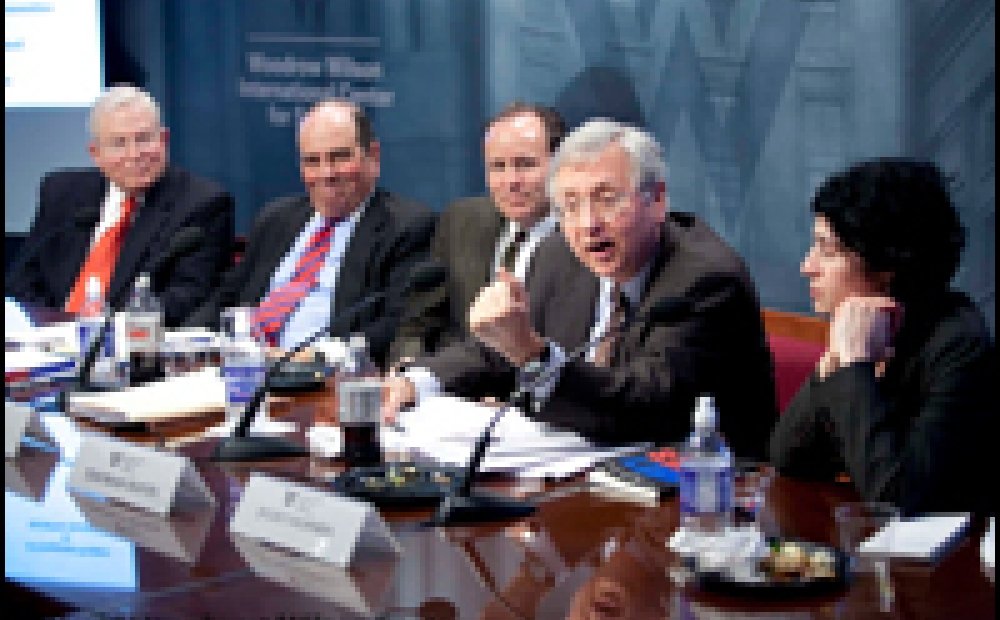Can Redistricting Reforms Reduce Polarization in Congress?

While popular conventional wisdom may support the notion that redrawing congressional district lines by independent commissions may produce more competitive and less partisan Members of Congress, three of four panelists at a Congress Project seminar Feb. 22 concluded it has little effect on the voting behavior of Representatives no matter how it is done.
Thomas Hofeller of the Republican National Committee, who has directed the RNC's redistricting efforts for four consecutive decades, said the existing seven states that use some form of outside redistricting entity for congressional redistricting have such different rules, procedures and memberships, that it's difficult to generalize they have any effect on the partisanship of Members chosen from those districts. But he did conclude that it was not a major factor in the polarization in Congress today. Moreover he debunked the notion that independent entities are any more fair or objective than partisan legislatures: "There is no such thing as a non-political commission." Hoffler noted that the 2010 census will likely result in eight states in the south, southwest and west picking-up eleven seats, while eight states, mostly in the northeast and Midwest will lose that number of Members. For the first time since it gained statehood, California will not be gaining in seats. Since 1930, Hofeller noted, 100 seats in Congress have shifted to other states—again mostly from the northeast and Midwest to the south and west. Whereas the average congressional district in 1930 represented 283,000 constituents, today it contains 713,000 residents.
Professor David Oedel of Mercer University Law School, was the lone dissenter on the panel, on the significance of redistricting on extreme partisanship in the House. Based on a research study he and his colleagues conducted of five states that established redistricting commissions in 2000, the partisan voting of Members declined by 13 percent on average in such states after redistricting. He concluded that the "redistricting revolution" since 1970 is primarily responsible for the recent spike in partisanship and that "states can free representatives from party prisons by un-tethering the redistricting process from control by the political parties."
Thomas Mann, senior fellow at the Brookings Institution, said that while he once thought there must be a significant causal connection between independent redistricting and the type of Members elected from the new districts, there is no data to support any substantial link. "Polarization has been with us before, but it is not always linked to redistricting changes." Polarization goes beyond ideology, said Mann. It is mainly tied to pressure on members of both Houses to stick with their leaders in Congress in order to win the next election. The regional realignment of the parties has also contributed greatly to polarization as Republicans increasingly won seats in the south and southwest and Democrats become more similar in outlook than when there was a southern conservative-northern liberal split in the party. Mann said there were too few independent redistricting commissions to draw any conclusions about their impact on Members partisanship, especially since so many of the bodies are merely advisory. Nevertheless, Mann acknowledged that everything important in politics happens at the margins, and therefore redistricting changes still deserve attention. He indicated he will be engaged in a project that makes alternative redistricting maps available online so that voters will have a more transparent means of understanding how it works and opportunity to offer informed opinions on their preferences.
Washington Post reporter Juliet Eilperin, author of "Fight Club Politics: How Partisanship is Poisoning the House of Representatives," said her views fell somewhere between Professor Oedel's and Tom Mann's. "Redistricting is a factor in polarization, even though it is not the driving force. The criteria used for redrawing district lines is probably more important than how it is done. Members are more afraid of being challenged in primaries by people from their own parties than they are of the opposing party. Incumbents are actively involved in trying to make themselves safer. They're big scaredy cats." Eilperin said one of the things that convinced her redistricting was not a major cause of partisanship was the fact that the Senate has become almost as partisan as the House, and of course it's not subject to redistricting; each state has had two senators from the beginning. A bigger contributing factor, she concluded, was that party activists—a small minority of the electorate—are at the extreme ends of the political spectrum, and they along with the 24/7 cable news channels create "an echo chamber" that is driving the conversation within the parties. Members respond by playing to their base. In the process, she observed, more and more moderates are being forced out of their parties by more ideological members.
On a somewhat optimistic concluding note, the panelists agreed that reforming the redistricting process might at least instill in voters a greater sense of confidence and trust in government and that in turn could lessen the degree of partisanship within the Congress and encourage more cross-party cooperation.
By Don Wolfensberger and Megan Sigovich
Don Wolfensberger, Director, Congress Project